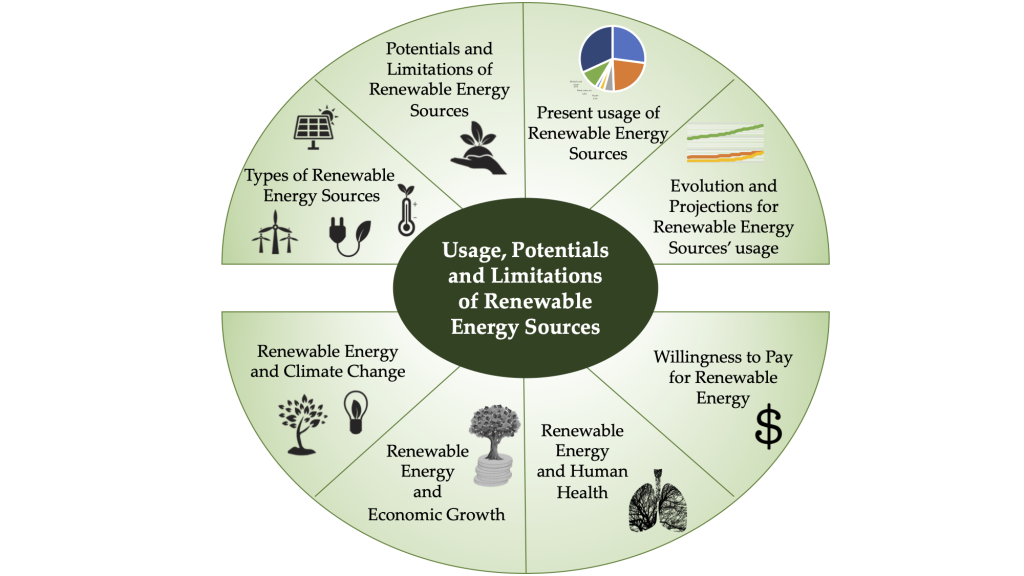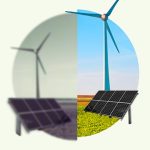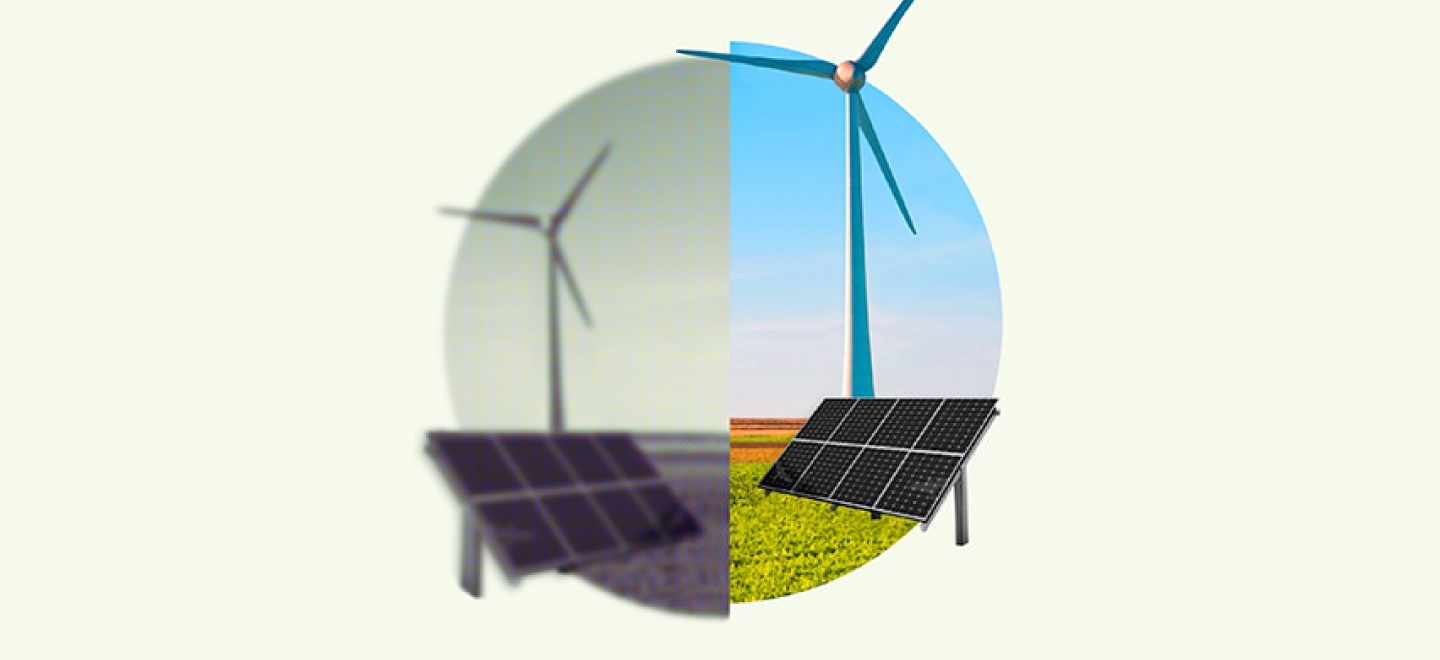Introduction to Renewable Energy and Economic Growth
A surge in renewable energy sources has taken hold in several countries, creating new economies and transforming the energy sector. The term “renewable energy” is normally used to refer to energy sources like wind and solar power that are replenished naturally. The Politics of Renewable Energy: Balancing Environmental and Economic Concerns is a key theme underpinning this shift towards greener energy solutions.
Solar and wind energy have proven to be significant renewable energy sources, spearheading the energy transition away from fossil fuels. Countries such as the United States have made considerable strides in renewable energy projects, tapping into these abundant energy resources. The use of renewable energy has significantly contributed to economic growth and sustainable development in developing countries.
Clean energy has a significant influence in promoting energy efficiency in several sectors. It is not only environmentally friendly, but also a driver of economic growth. The shift in the focus to low-carbon energy sources underscores the need for an energy policy that balances both environmental and economic concerns.
Hybrid Renewable Energy Systems: Socio-Economic and Environmental Consequences
Socio-Economic Importance of Renewable Energy
As et al (2017) indicate, renewable energy resources are not only essential for clean energy generation but also contribute significantly to socio-economic development. Renewable energy projects have spurred remarkable economic development, especially in developing countries, slowly phasing out the extensive use of fossil fuel.
Solar power, wind energy, and other forms of renewable energy have created job opportunities, reduced energy costs, and bolstered energy independence in many regions. Et al (2018) highlight that the energy demand for renewable sources has been on a steady incline, signaling a long-term growth trajectory that positively impacts the global economy.
Environmental and Techno-Economic Impacts of Hybrid Renewable Energy Systems
According to renew sustain energy rev, hybrid renewable energy systems combine different energy technologies to maximize energy generation and efficiency. In terms of environmental impacts, these systems significantly reduce greenhouse gas emissions emanating from the burning of fossil fuels.
From a techno-economic perspective, there are significant advantages in deploying hybrid systems. They offer a higher return on investment through efficient power generation and reduction of carbon emissions. Notably, the integration of renewable energy, especially solar and wind, contributes immensely to sustainable energy and thus, economic growth.
Climate Change and Renewable Energy: A Critical Interplay
Climate Change Effects on Hybrid Systems of Renewable Energy
Climate change has been a defining factor shaping global energy decisions. Extreme weather conditions such as storms, heavy rainfall, and high temperatures can influence renewable energy production, particularly wind and solar energy.
Conversely, hybrid energy systems can adapt to these varying environmental conditions due to their varied energy sources, cushioning against short term disruptions. Economies are thus safer under an energy sector dominated by hybrid systems as compared to fossil fuels.
The Role of Hybrid Renewable Energy in Climate Change Mitigation
According to renew sustain energy rev, the integration of renewable energy plays a crucial role in mitigating the effects of climate change. These systems significantly reduce carbon emissions by replacing fossil fuels with cleaner sources like solar and wind energy.
Clean energy technologies boost energy efficiency, lower carbon dioxide and greenhouse gas emissions, and contribute to long-term sustainability. They offer a practical approach to lowering global temperatures, demonstrating the substantial role of renewable energy in mitigating climate change.

Understanding the Financial Aspects of Renewable Energy
Economic Parameters and Cost Analysis of Hybrid Energy Systems
Investing in hybrid renewable energy systems has inherent economic benefits. Although the initial capital expenditure can be high, the potential for long-run economic benefits such as lower energy bills and increased property value are attractive. Renewable energy sources significantly reduce the reliance on expensive nonrenewable energy sources such as coal and natural gas.
Through a cost-benefit analysis in a study by et al, it is clear that renewable energy promises a sustainable future for economic development. Given the substantial costs arising from carbon dioxide and other pollutant emissions, transitioning to renewable energy is an unavoidable path.
Conclusion: The Future of Renewable Energy in the Economic and Environmental Landscape
With the increasing need for sustainable solutions, renewable energy generation seems poised to dictate not only the future of global energy but also the economic development of nations. The importance of renewable energy cannot be overstated as its impacts go beyond the energy sector to influence economies and contribute significantly to climate change mitigation.
Renewable energy has gained a crucial role in promoting sustainable development and reducing greenhouse gas emissions. Through the widespread integration of renewable energy in the energy sector, countries can achieve energy efficiency, economic growth, and environmental sustainability. As we transition to a renewable energy-dominated world, it is essential that “The Politics of Renewable Energy: Balancing Environmental and Economic Concerns” be at the forefront of our decision making, ensuring a sustainable energy future for all.










